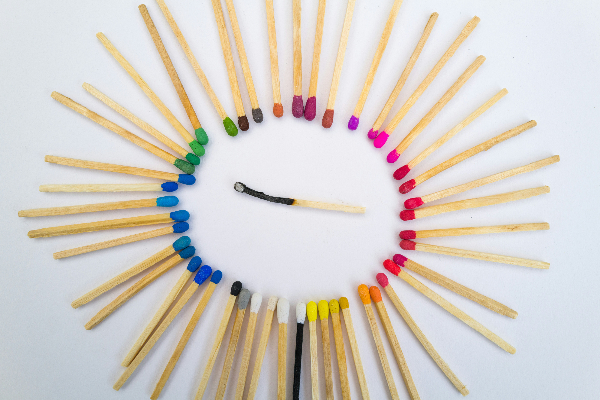Preparing for Difficult Conversations

There is no education without ethics. This is the way my former Philosophy professor, Joan-Carles Mèlich, started each class. As I was getting trained to become a teacher, this was a powerful reminder of the responsibility I had as an educator with my students. I had to carefully consider how my relationship with children and youth could serve as a tool for positive change or, on the contrary, as a way to maintain the status quo. As educators, we have choices in the ways we discuss expressions of racial and religious hatred, like the recent events in Charlottesville (US), or analyze the response to NFL players kneeling during the US anthem. There is no education without ethics.
Educators should anticipate students to want to discuss these events or others affecting their lives. Although it might be uncomfortable at times, it is worth having these meaningful conversations with students. My hope is that, as schools embrace SEL implementation, educators will create the conditions for students to understand each other, celebrate their differences and make positive choices for themselves and their communities.
There are many free resources available that may be helpful in having these difficult conversations in the classroom. This is a complete list shared by CASEL, which includes links to resources developed after the August 2017 conflict in Charlottesville, free lessons to discuss DACA from the Morningside Center for Teaching Social Responsibility and how to discuss #takeaknee from Teaching Tolerance. But before you start planning how to address these topics with your students, it might be helpful to reflect on how you can prepare yourself to have these conversations in the classroom.
Let’s use the Six Seconds model to help us clarify our feelings, thoughts and actions. First, think about a recent event (it could be one of these or others affecting your student population) that you would like to discuss with your students. Then, take a piece of paper and answer the following questions:
1. What do I feel? Write down 2 or 3 feelings that emerge when you think about this particular event. Think about the different actors in the story. Do they generate the same feelings? Add to your list if new feelings emerge. Now go a step further – think about your own bias. Can you identify how your background and past experiences affect your feelings about this particular event? Does the event trigger any reactions?
2. What options do I have? Write down the different actions that you could take based on answers to number 1. What actions are your emotions encouraging you to take? You might want to ignore that these events are happening, because the feelings are so uncomfortable (fly response). Or you might not know what to do or even how to start unpacking the event for your students. Now, look at the different options and ask yourself if they are appropriate (for yourself, for others). What are the pros and cons of the different alternatives? Are these options treating others with fairness and respect, even when you don’t agree with them? If you could look at this event with an optimistic lens, how would you present it to your students? Write it down.
3. What do I really want? This is a simple question that is often very difficult to answer! Think about your purpose. What is it that you are really trying to teach your students? What do you hope your students learn from this event and its consequences? If you were true to your purpose, what would you do? Write it down. Now summarize in one sentence what your immediate next step is.
After going through this exercise, do you have more clarity about what to do? I hope you do. Now, go ahead! Look at the list of resources and plan how you will address these topics with your students. Refer back to your feelings, your choices and your purpose to inform your decisions. At the core, Social Emotional Learning is finding in ourselves those elements we are hoping our students learn and carry with them as we’re building a more equitable and just society.
2 Comments
Leave a Reply to Lorea Martinez, PhDCancel reply
Subscribe to the HEART in Mind Newsletter
Research-Based Strategies for your SEL Toolbox










I wish all commenters on FB would take a moment to reflect on your questions before they blast people with their opinions of such difficult conversations. Thanks for sharing.
Thank you for your comment. Yes, unfortunately we often feel the need to share our opinions without being ready to listen to others’ points of view. These difficult topics trigger many of us to react, instead of responding, and FB becomes a place to vent, instead of building dialogue for understanding. Taking time to reflect on the purpose of our comments could definitely prevent less constructive comments!